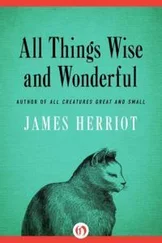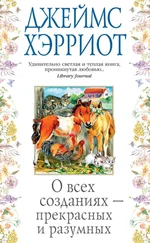Джеймс Хэрриот - All Creatures Great and Small
Здесь есть возможность читать онлайн «Джеймс Хэрриот - All Creatures Great and Small» весь текст электронной книги совершенно бесплатно (целиком полную версию без сокращений). В некоторых случаях можно слушать аудио, скачать через торрент в формате fb2 и присутствует краткое содержание. Год выпуска: 2011, ISBN: 2011, Издательство: Open Road Media, Жанр: Домашние животные, на английском языке. Описание произведения, (предисловие) а так же отзывы посетителей доступны на портале библиотеки ЛибКат.
- Название:All Creatures Great and Small
- Автор:
- Издательство:Open Road Media
- Жанр:
- Год:2011
- ISBN:9781453234488
- Рейтинг книги:4.33 / 5. Голосов: 3
-
Избранное:Добавить в избранное
- Отзывы:
-
Ваша оценка:
- 80
- 1
- 2
- 3
- 4
- 5
All Creatures Great and Small: краткое содержание, описание и аннотация
Предлагаем к чтению аннотацию, описание, краткое содержание или предисловие (зависит от того, что написал сам автор книги «All Creatures Great and Small»). Если вы не нашли необходимую информацию о книге — напишите в комментариях, мы постараемся отыскать её.
All Creatures Great and Small — читать онлайн бесплатно полную книгу (весь текст) целиком
Ниже представлен текст книги, разбитый по страницам. Система сохранения места последней прочитанной страницы, позволяет с удобством читать онлайн бесплатно книгу «All Creatures Great and Small», без необходимости каждый раз заново искать на чём Вы остановились. Поставьте закладку, и сможете в любой момент перейти на страницу, на которой закончили чтение.
Интервал:
Закладка:
But in this first year I found a fascination in the work which has remained with me. Lambing, it seemed to me, had all the thrill and interest of calving without the hard labour. It was usually uncomfortable in that it was performed in the open; either in draughty pens improvised from straw bales and gates or more often out in the fields. It didn’t seem to occur to the farmers that the ewe might prefer to produce her family in a warm place or that the vet may not enjoy kneeling for an hour in his shirt sleeves in the rain.
But the actual job was as easy as a song. After my experiences in correcting the malpresentations of calves it was delightful to manipulate these tiny creatures. Lambs are usually born in twos or threes and some wonderful mix-ups occur; tangles of heads and legs all trying to be first out and it is the vet’s job to sort them around and decide which leg belonged to which head. I revelled in this. It was a pleasant change to be for once stronger and bigger than my patient, but I didn’t over-stress this advantage; I have not changed the opinion I formed then that there are just two things to remember in lambing—cleanliness and gentleness.
And the lambs. All young animals are appealing but the lamb has been given an unfair share of charm. The moments come back; of a bitterly cold evening when I had delivered twins on a wind-scoured hillside; the lambs shaking their heads convulsively and within minutes one of them struggling upright and making its way, unsteady, knock-kneed, towards the udder while the other followed resolutely on its knees.
The shepherd, his purpled, weather-roughened face almost hidden by the heavy coat which muffled him to his ears, gave a slow chuckle. “How the ’ell do they know?”
He had seen it happen thousands of times and he still wondered. So do I.
And another memory of two hundred lambs in a barn on a warm afternoon. We were inoculating them against pulpy kidney and there was no conversation because of the high-pitched protests of the lambs and the unremitting deep baa-ing from nearly a hundred ewes milling anxiously around outside. I couldn’t conceive how these ewes could ever get their own families sorted out from that mass of almost identical little creatures. It would take hours.
It took about twenty-five seconds. When we had finished injecting we opened the barn doors and the outpouring lambs were met by a concerted rush of distraught mothers. At first the noise was deafening but it died away rapidly to an occasional bleat as the last stray was rounded up. Then, neatly paired off, the flock headed calmly for the field.
Through May and early June my world became softer and warmer. The cold wind dropped and the air, fresh as the sea, carried a faint breath of the thousands of wild flowers which speckled the pastures. At times it seemed unfair that I should be paid for my work; for driving out in the early morning with the fields glittering under the first pale sunshine and the wisps of mist still hanging on the high tops.
At Skeldale House the wistaria exploded into a riot of mauve blooms which thrust themselves through the open windows and each morning as I shaved I breathed in the heady fragrance from the long clusters drooping by the side of the mirror. Life was idyllic.
There was only one jarring note; it was the time of the horse. In the thirties there were still quite a lot of horses on the farms though the tractors had already sounded their warning knell. In the farms near the foot of the Dale where there was a fair amount of arable land the rows of stables were half empty but there were still enough horses to make May and June uncomfortable. This was when the castrations were done.
Before that came the foaling and it was a common enough thing to see a mare with her foal either trotting beside her or stretched flat on the ground as its mother nibbled at the grass. Nowadays the sight of a cart mare and foal in a field would make me pull up my car to have another look.
There was all the work connected with the foalings; cleansing the mares, docking the foals’ tails, treating the illnesses of the new born—joint ill, retained meconium. It was hard and interesting but as the weather grew warmer the farmers began to think of having the year-old colts castrated.
I didn’t like the job and since there might be up to a hundred to be done, it cast a shadow over this and many subsequent springs. For generations the operation had been done by casting the colt and tying him up very like a trussed chicken. It was a bit laborious but the animal was under complete restraint and it was possible to concentrate entirely on the job; but about the time I qualified, standing castration was coming very much to the fore. It consisted simply of applying a twitch to the colt’s upper lip, injecting a shot of local anaesthetic into each testicle and going straight ahead. There was no doubt it was a lot quicker.
The obvious disadvantage was that the danger of injury to the operator and his helpers was increased tenfold, but for all that the method rapidly became more popular. A local farmer called Kenny Bright who considered himself an advanced thinker took the step of introducing it to the district. He engaged Major Farley, the horse specialist, to give a demonstration on one of his colts, and a large gathering of farmers came to spectate. Kenny, smug and full of self-importance, was holding the twitch and beaming round the company as his protégé prepared to disinfect the operation site, but as soon as the major touched the scrotum with his antiseptic the colt reared and brought a forefoot crashing down on Kenny’s head. He was carried away on a gate with his skull fractured and spent a long time in hospital. The other farmers didn’t stop laughing for weeks but the example failed to deter them. Standing castration was in.
I said it was quicker. It was when everything went smoothly, but there were other times when the colt kicked or threw himself on top of us or just went generally mad. Out of ten jobs nine would be easy and the tenth would be a rodeo. I don’t know how much apprehension this state of affairs built up in other vets but I was undeniably tense on castration mornings.
Of course, one of the reasons was that I was not, am not and never will be a horseman. It is difficult to define the term but I am convinced that horsemen are either born or acquire the talent in early childhood. I knew it was no good my trying to start in my mid twenties. I had the knowledge of equine diseases, I believed I had the ability to treat sick horses efficiently but that power the real horseman had to soothe and quieten and mentally dominate an animal was beyond my reach. I didn’t even try to kid myself.
It was unfortunate because there is no doubt horses know. It is quite different with cows; they don’t care either way; if a cow feels like kicking you she will kick you; she doesn’t give a damn whether you are an expert or not. But horses know.
So on those mornings my morale was never very high as I drove out with my instruments rattling and rolling about on an enamel tray on the back seat. Would he be wild or quiet? How big would he be? I had heard my colleagues airily stating their preference for big horses—the two-year-olds were far easier, they said, you could get a better grip on the testicles. But there was never any doubt in my own mind. I liked them small; the smaller the better.
One morning when the season was at its height and I had had about enough of the equine race, Siegfried called to me as he was going out. “James, there’s a horse with a tumour on its belly at Wilkinson’s of White Cross. Get along and take it off—today if possible but otherwise fix your own time; I’ll leave it with you.”
Feeling a little disgruntled at fate having handed me something on top of the seasonal tasks, I boiled up a scalpel, tumour spoons and syringe and put them on my tray with local anaesthetic, iodine and tetanus antitoxin.
Читать дальшеИнтервал:
Закладка:
Похожие книги на «All Creatures Great and Small»
Представляем Вашему вниманию похожие книги на «All Creatures Great and Small» списком для выбора. Мы отобрали схожую по названию и смыслу литературу в надежде предоставить читателям больше вариантов отыскать новые, интересные, ещё непрочитанные произведения.
Обсуждение, отзывы о книге «All Creatures Great and Small» и просто собственные мнения читателей. Оставьте ваши комментарии, напишите, что Вы думаете о произведении, его смысле или главных героях. Укажите что конкретно понравилось, а что нет, и почему Вы так считаете.
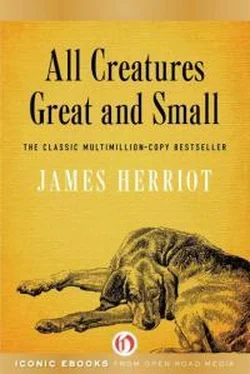
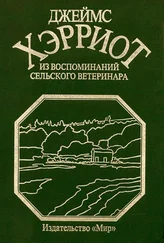
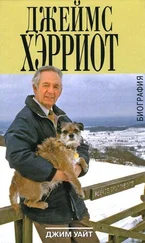
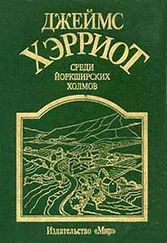
![Джеймс Хэрриот - О всех созданиях – больших и малых [litres]](/books/391169/dzhejms-herriot-o-vseh-sozdaniyah-bolshih-i-malyh-thumb.webp)

